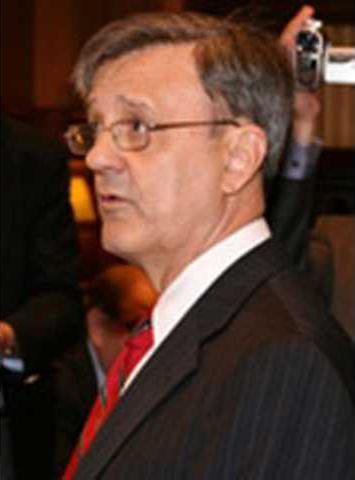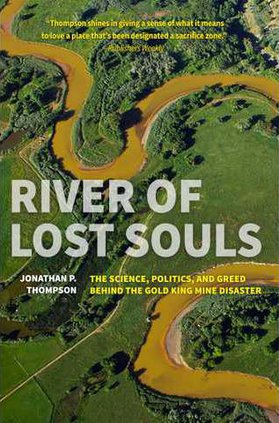POLITICAL PARTY: Democrat
DATE OF BIRTH: Aug. 22, 1945 (63)
HOMETOWN: Atlanta
RESIDENCE: Atlanta
EDUCATION: B.A., University of Georgia; Law degrees from University of Georgia, 1969; Masters in Business Administration, Georgia State University.
PROFESSIONAL BACKGROUND: U.S. Army, served in Vietnam 1969-1971; Lawyer, started legal career in 1972 as an assistant legislative counsel to the Georgia Legislature.
POLITICAL BACKGROUND: Georgia House of Representatives, 1983-2001, including a stint as chairman of the House Judiciary committee. Appointed by Gov. Roy Barnes in 2001 as commissioner of the Department of Human Resources, resigned in 2003. Democratic candidate for lieutenant governor in 2006.
RELIGION: Presbyterian
FAMILY: Wife, Joan; Four children, three grandchildren.
ON THE NET: www.martinforsenate.com
"I'm nice, but I am also tough," Martin said during a recent bus tour of middle Georgia. "I've proven that I can go toe-to-toe with Saxby."
Georgia's Dec. 2 runoff has drawn national attention and allowed Martin - who was trounced just two years ago in the race for lieutenant governor - to suddenly share the stage with Democratic Party titans like former President Bill Clinton and Vice President Al Gore.
If he upsets Chambliss, Martin could help the Democrats win a filibuster-proof 60 seats in the Senate giving President-elect Barack Obama a stronger hand in moving his agenda. Democrats are just two votes short of the 60 votes needed and Georgia is one of two undecided contests.
Martin, 63, has portrayed himself as an ally of the middle class and Chambliss as a pawn of special interests interested only in slowing Obama's agenda. It's a populist theme that Martin has evoked throughout his two decades in public service.
Martin grew up in Atlanta, the second oldest of six boys. He contracted polio in third grade and was quarantined for a time from his brothers, but he recovered enough to eventually run cross country and track.
Martin attended the University of Georgia, where he and Chambliss were fraternity brothers.
Friends there recall Martin as studious - the earnest class president with a dry wit. His pursuit of a political career was no surprise to those who knew him in Athens.
He earned a law degree at UGA before enrolling in the U.S. Army. He was shipped off to Vietnam just two months after his wife, Joan, gave birth to their first child. In Vietnam, he worked as a personnel officer in military intelligence.
Martin returned to Georgia and took a job with the office of legislative counsel, a nonpartisan office that researches and drafts legislation for lawmakers from both parties.
His family had a brush with near tragedy when his 8-year-old daughter Becky was kidnapped walking home from school in 1980. Her assailant let her go unharmed after she struggled.
He left the Capitol after five years and went to work as a lobbyist for the Georgia Legal Aid Society, urging legislators to pass measures aimed at families with disabilities and low-income Georgians.
He won his first campaign for the statehouse in 1982 - a 10-way race for a legislative seat representing parts of Atlanta. He went on to spend the next 18 years in the Legislature, rising to chair a key legal committee while he also maintained a private law practice.
In 2001, he resigned his seat in the Georgia House after being tapped by Democratic Gov. Roy Barnes to take over as commissioner of the state Department of Human Resources.
Friends were shocked, as running the state's unwieldy social services bureaucracy was seen as a sure ticket to political oblivion. But Martin, who had made issues dealing with children and the disadvantaged the cornerstone of his legislative career, said the decision was easy.
"I've always taken the hard jobs where I thought I could make a difference," Martin said.
He took over the department in September 2001 and soon had to implement deep budget cuts amid an economic downturn after the terror attacks.
Chambliss has attacked Martin's tenure at DHR, pointing to the beating deaths of two toddlers returned to abusive homes despite repeated complaints. He also has said Martin was "fired" from the job.
Martin, though, said he worked to streamline department operations, such as child support collections, to save money and help blunt the impact of budget cuts. He said he and Gov. Sonny Perdue, a Republican who took office in 2002, came to an agreement that he should step down.
Child advocates still look fondly on Martin's tenure. Normer Adams, who leads the Georgia Association of Homes and Services for Children, praised Martin's leadership.
"He was instrumental in moving DHR into the modern era when it came to child welfare," Adams said.
Martin tried to return to public life with his 2006 bid for lieutenant governor, losing the contest by 12 percentage points to Republican Casey Cagle, a little-known state senator.
Martin only entered the U.S. Senate race in April - months after Democratic rivals had announced - after being lobbied by party leaders who also pledged financial backing. He has been running hard every since.
Martin came in second in a five-way primary contest in July and then defeated DeKalb County Chief Executive Officer Vernon Jones in a bitter August primary runoff. The Dec. 2 runoff against Chambliss will mark the fourth time Martin faces voters this year.
Martin won 46.8 percent of the vote in Nov. 4 general election, trailing Chambliss by 3 percentage points. But in the three-way race, none of the candidates earned the needed 50 percent plus one of the votes.
In the days leading up to the runoff, Martin has continued to make the economy the centerpiece of his campaign.
He has railed against Chambliss' vote for the $700 billion bailout for the financial services industry, saying the legislation did not do enough to help homeowners facing foreclosure or protect against abusive lending practices.
He's generally supportive of a Democratic-backed economic stimulus plan, which he argues would help the ailing middle class.
Martin has also wasted no opportunity to link himself to Obama, who has lent his campaign dozens of aides to help drive out the vote.
Martin's first runoff television ad led with an excerpt from an Obama speech. Obama has recorded a radio ad for Martin and automated phone calls on his behalf. Getting Obama voters back to the polls Dec. 2 will be critical to Martin's success.
But it's looking increasingly unlikely that Obama will accept Martin's invitation to join him on the campaign trail.




